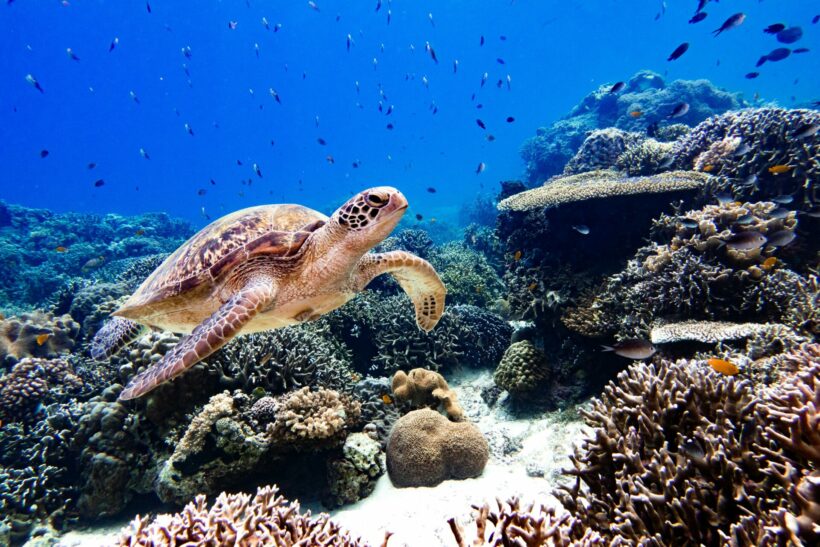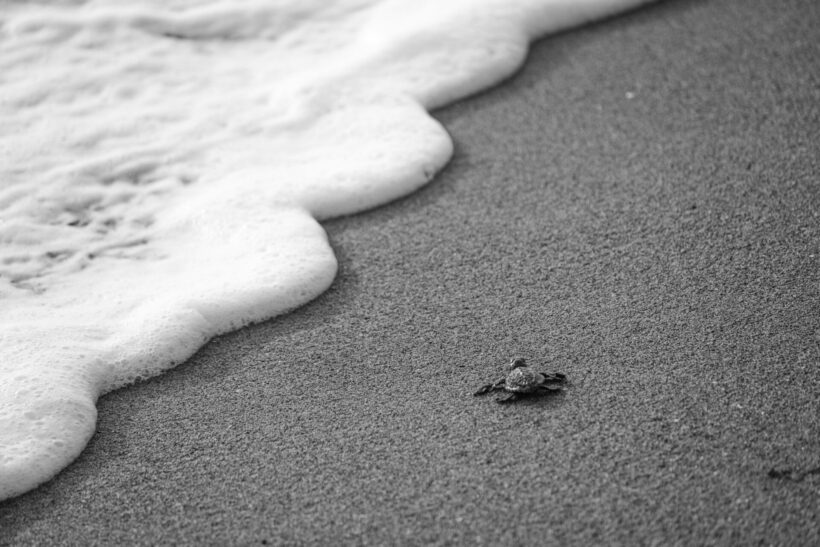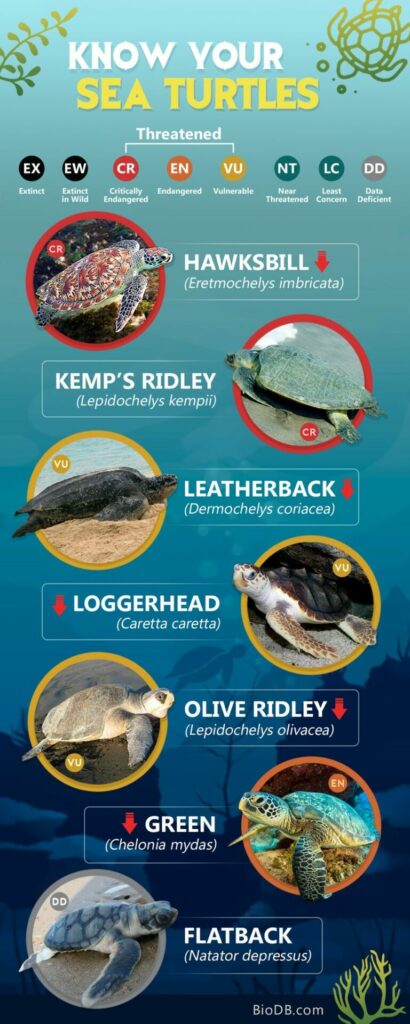by: Assaf Levy, BioDB
For over 200 million years, seven species of sea turtles have graced the world’s oceans, their streamlined bodies propelled by powerful flippers. Guided by the Earth’s magnetic field, these ancient mariners undertake awe-inspiring migrations, traversing vast distances with an uncanny ability to return to their exact birthplaces to nest. Their lifecycles are intricately tied to the health of our oceans, with females returning to the same beaches where they hatched decades earlier to lay their eggs. They spend their lives traversing currents, feeding on jellyfish and other marine creatures in vibrant coral reefs and lush seaweed beds.
June 16 is World Sea Turtle Day, a special occasion dedicated to raising awareness about the importance of protecting these magnificent creatures and their fragile marine habitats. Graceful and beautiful, with streamlined bodies and flippers adapted for swimming, the seven existing species of sea turtles are among approximately 360 species of turtles and tortoises.
Among the most pressing threats are habitat loss and degradation due to coastal development, pollution, and climate change. The destruction of nesting beaches and coral reefs disrupts their natural life cycles and breeding habits. Additionally, sea turtles frequently become entangled in fishing gear, which can result in severe injuries or death. The ingestion of plastic debris, mistaken for food, poses a severe health risk, often leading to internal damage or blockages.
To address these challenges, various conservation measures are necessary. Promoting responsible coastal development practices that preserve nesting habitats, implementing stricter fishing regulations to prevent accidental capture and entanglement, and educating communities and tourists about conservation efforts are crucial steps. Raising awareness about the dangers of plastic pollution and encouraging responsible waste management can significantly reduce the threats sea turtles face.

Credit: Pexels
A poignant example of the urgent need for conservation action is the situation at the Cayman Turtle Farm, where approximately 9,500 endangered green sea turtles are farmed for meat. The conditions in which these turtles are kept are alarming, with overcrowded, unsanitary tanks causing extreme stress, aggression, and injury. Tourists are often invited to handle these stressed turtles, further endangering their well-being. However, a campaign is underway to transform the Cayman Turtle Farm into a turtle rehabilitation and release facility, offering hope for the recovery of these majestic creatures.
The International Union for Conservation of Nature (IUCN) has assessed the conservation status of six sea turtle species. The green sea turtle is listed as Endangered, underscoring the urgent need for protective measures. The olive ridley, loggerhead, and leatherback sea turtles are classified as Vulnerable, indicating they are at high risk of extinction in the wild. The hawksbill and Kemp’s ridley sea turtles, the latter being the rarest and the only species to nest during the day, are classified as Critically Endangered. Additionally, the flatback sea turtle, found only in Australian waters, is considered Data Deficient, highlighting the need for further research and conservation efforts.

Credit: Pexels
World Sea Turtle Day serves as a reminder of our responsibility to safeguard these ancient mariners. By addressing the threats they face, promoting sustainable practices, and supporting conservation initiatives, we can help ensure that sea turtles continue to thrive in our oceans for generations to come.
Let us work together to protect these extraordinary creatures and their habitats, ensuring a future where they can flourish.






